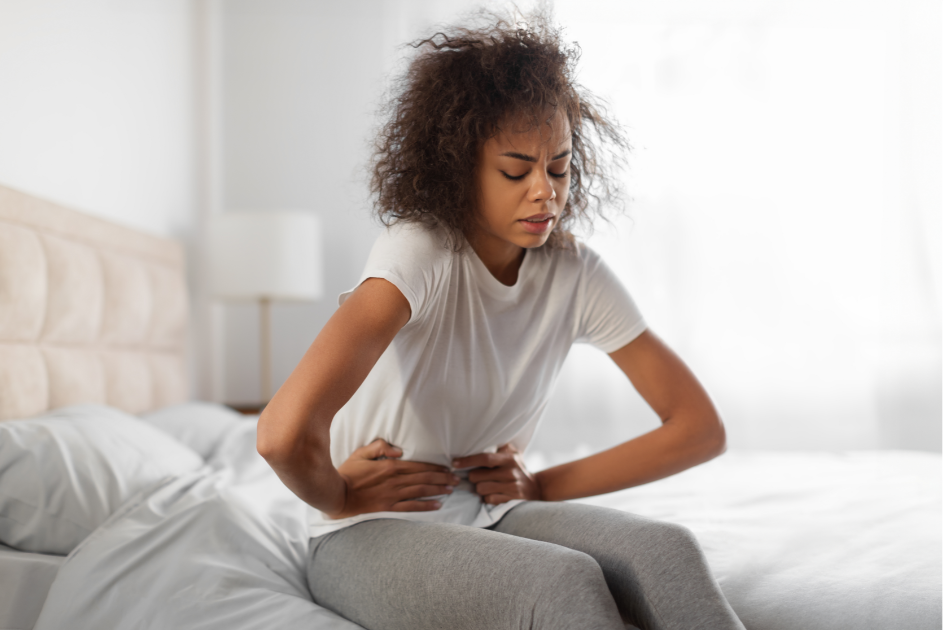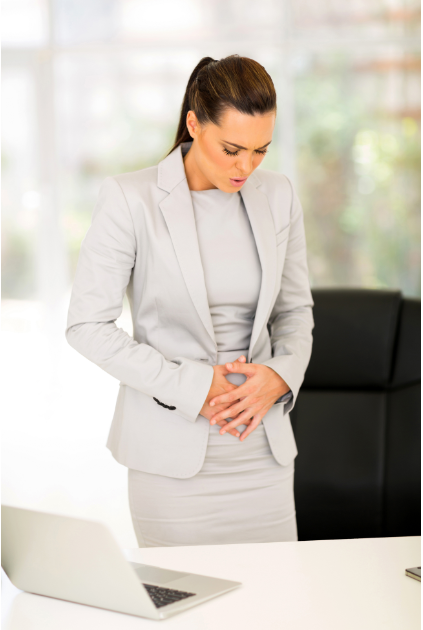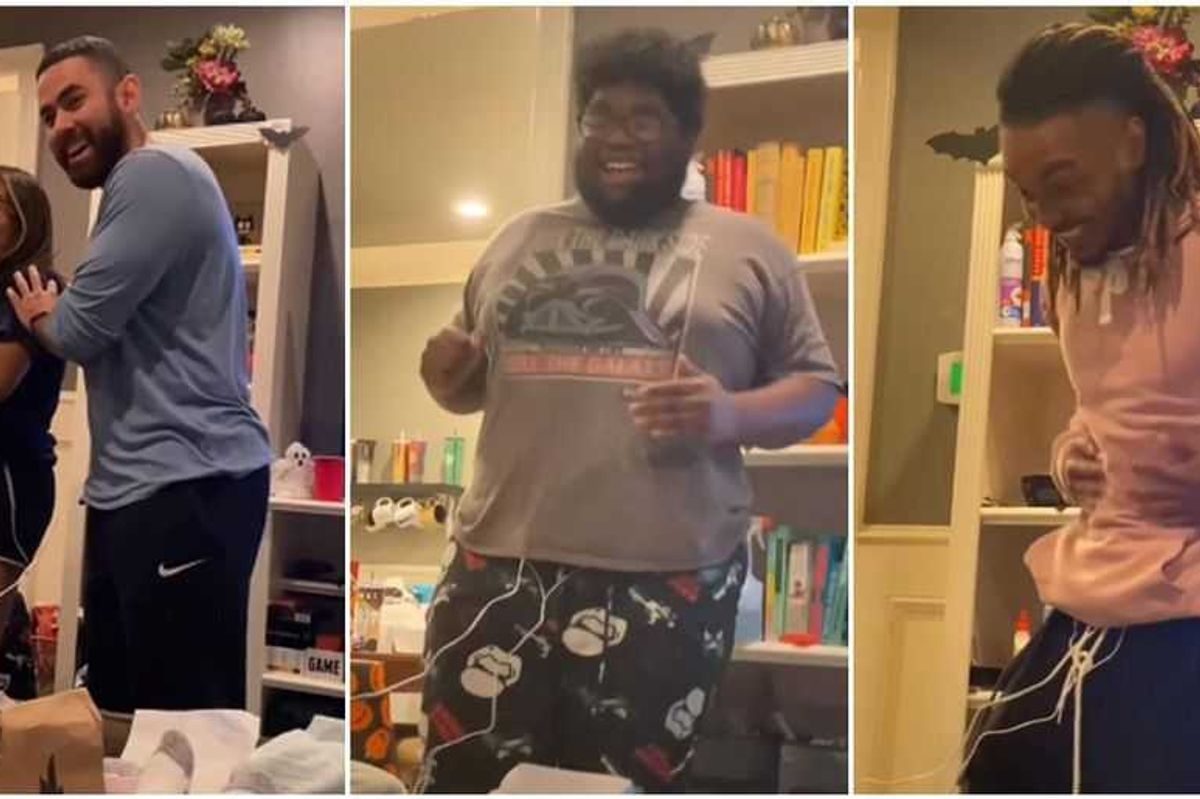Four guys try a menstrual cramp simulator and can't remotely handle it
"It's stabbing me! What do I do?"
Men try a period simulator and hilarity ensues.
They say the best way to understand another person is to walk a mile in their shoes. If you ask most women, though, they'll tell you to forget about the shoes. They've got much bigger problems they wish men could understand.
Imagine how different the world would be if cis-gendered men had the ability to give birth, for example? Would Roe v. Wade have been controversially overturned in 2022, thus ushering in some truly draconian abortion policies, restrictions, and near total bans in various states? If men needed access to abortions, would they be available on-demand? Would we live in a country without mandatory paid maternity leave? How much more affordable would childcare be? Would there be a tax on period products? Overall, how would we treat people experiencing period pain?

Well, in 2021, a few men decided to see what life was like for people who have periods in a funny but enlightening video that went viral on TikTok. In fact, the video started a trend that's still going strong today.
In a video posted by Benz Trap House that, as of this writing, has 5.3 million views, a group of guys tried a period simulator to experience what menstrual cramps really feel like. Period simulators are essentially the same as labor simulators. They're called transcutaneous electrical nerve stimulation (TENS) machines that are designed to relieve pain. But when turned up a notch, they can create intense, debilitating discomfort.
The group took a semi-scientific approach to the experiment with a woman acting as a control subject. At the beginning of the video, she attaches the simulator to her abdomen and turns it up to ten, the highest setting. In the clip, the group looks impressed as she endures the extreme setting without showing any discomfort.
The men would not do as well.
@benztraphouse The boys tried a period simulator #fyp #foryou #foryoupage #funny #periodcramps #periodsimulator #viral
When the first guy tried the simulator, he was shocked by the discomfort. "Is it supposed to hurt like that?" the second guy says before erupting in nervous laughter.
The third guy said that he felt the pain all the way down to his knee caps.
The men's description of the pain certainly seems to indicate that the simulator machine is pretty accurate. According to Mayo Clinic, menstrual cramps are a "throbbing or cramping pain" that radiates to the lower back and thighs. The pain itself, during actual menstruation not simulated by electrical charges, is caused by repeated contractions of the uterus as it sheds its lining. The cramps can be much worse for women and menstruating people with certain conditions. In fact, they can be debilitating and excruciating. Despite all this, women are expected to just soldier on as if nothing's happening. In many male-dominated spaces, pain or other difficulties associated with periods is not considered a valid excuse for needing a day off, taking a break, or even going to the bathroom!
At one point in the video, the period simulator is attached to a woman and a man at the same time. When the device is turned on, the guy is in extreme pain while the woman stands still, claiming the feelings created by the machine are "not even as bad as a cramp."
"Yeah, my cramps hurt worse than this," she added.
See, this is exactly what they mean when they say women have a higher pain tolerance than men. Scientifically, that claim may be dubious, but when it comes to this specific kind of reproductive discomfort, women are far more used to sucking it up.
A lot of people who menstruate felt validated after seeing the guys experience their first period.

"'You feel that in your back, boi?' every month, friend," one commenter said.
One of the most popular comments said: "I'm convinced if men could get pregnant they'd have abortion clinics on every corner and paid maternity leave the whole pregnancy."
Another commenter pointed out that women have to go through an entire day in pain without a break. "When he said 'it's stabbing me what do I do?' You go to work, clean the house and continue on bb," they wrote.
"Please this needs to be added to every high school health class ... cause some guys really don’t understand the pain" another user added.
This comment took reality up a notch, writing, "Let's add headaches. And period poops. And bloating. And the feeling of blood leaving you. And the nausea," she wrote.
If only there were a machine that could simulate all that!

It remains a good thing that this lighthearted video went viral because it'll give some people newfound respect for the pain that people who have periods go through. Some who watched the video thought that period simulators should be mandatory in sex ed classes.
Imagine how different the world would be if everyone experienced menstrual pain just once in their life.
This article originally appeared four years ago. It has been updated.

